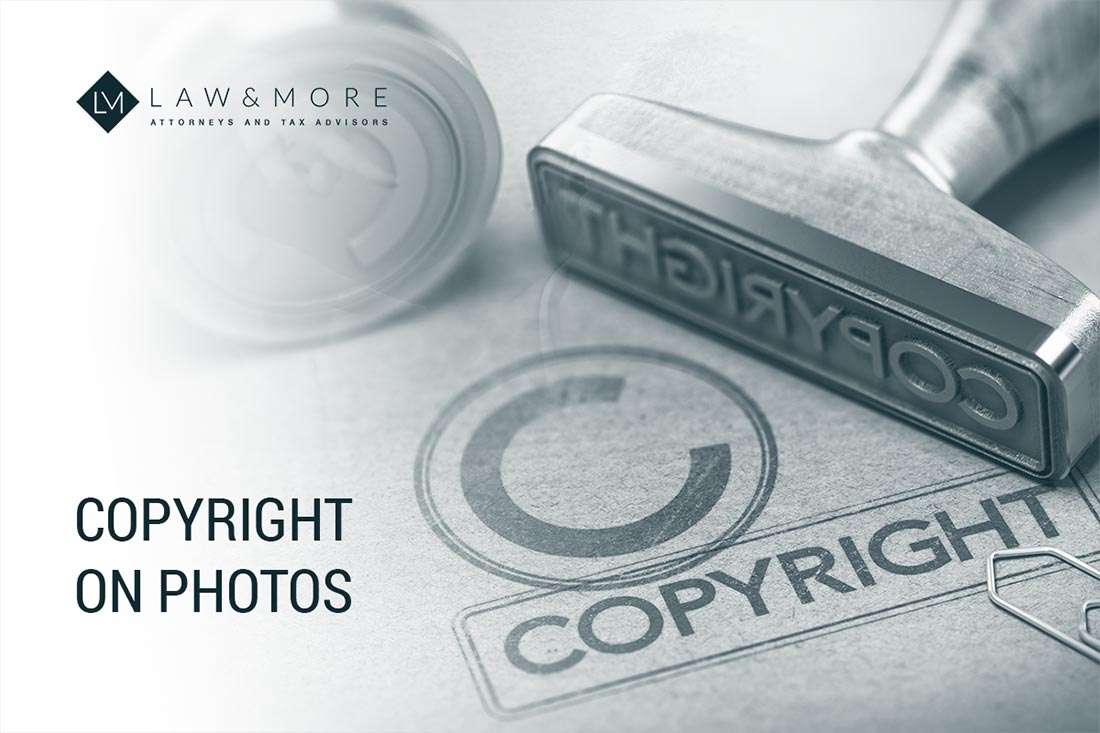Copyright on Photos: Protect Your Intellectual Property
Everyone takes pictures almost every day. But hardly anyone pays attention to the fact that an intellectual property right in the form of copyright comes to rest on every photo taken. What is a copyright? And what about, for example, copyright and social media? After all, nowadays the number of photos taken that subsequently appear on Facebook, Instagram or Google is greater than ever. These photos are then available online to a large audience. Who then still has the copyright on the photos? And are you allowed to post photos on social media if there are other people in your photos? These questions are answered in the blog below.

Copyright
The law defines copyright as follows:
“Copyright is the exclusive right of the creator of a literary, scientific or artistic work, or of his successors in title, to publish and reproduce it, subject to the restrictions imposed by law.”
In view of the legal definition of copyright, you, as the creator of the photo, have two exclusive rights. First of all, you have an exploitation right: the right to publish and multiply the photo. In addition, you have a copyright personality right: the right to object to the publication of the photo without mentioning your name or other designation as maker and against any modification, alteration or mutilation of your photo. Copyright automatically accrues to the creator from the moment the work is created.
If you take a photo, you will automatically and legally acquire the copyright. So, you don’t have to register or apply for copyright anywhere. However, the copyright is not valid indefinitely and expires seventy years after the creator’s death.
Copyright and social media
Because you have copyright as the maker of the photo, you can decide to post your photo on social media and thus make it accessible to a wide audience. That often happens. Your copyrights will not be affected by posting the photo on Facebook or Instagram. Yet such platforms can often then use your photos without permission or payment. Will your copyright be infringed? Not always. Usually you give away the usage rights to the photo that you post online via a license to such a platform.
If you upload a photo on such a platform, “terms of use” often apply. The terms of use may contain provisions that, upon your agreement, you authorize the platform to publish and reproduce your photo in a particular manner, for a particular purpose and or in a particular area. If you agree to such terms and conditions, the platform may post your photo online under its own name and use it for marketing purposes.
However, deleting the photo or your account on which you post the photos will also terminate the platform’s right to use your photos in the future. This often does not apply to any copies of your photos previously made by the platform and the platform may continue to use these copies under certain circumstances.
A violation of your copyrights is only possible if it is published or reproduced without your permission as the author. As a result, you, as a company or as an individual, can suffer damage. If someone else removes your photo from Facebook or Instagram account, for example, and then uses it without permission or any mention of the source on their own website / account, your copyright may have been infringed and you as the creator can take action against it. Do you have any questions about your situation in this regard, would you like to register your copyright or protect your work against persons who infringe your copyright? Then contact the lawyers of Law & More.
Portrait rights
Although the maker of the photo has the copyright and thus two exclusive rights, these rights are not absolute under certain circumstances. Are there other people in the picture too? Then the maker of the photo must take into account the rights of the photographed persons. The persons in the photo have portrait rights that relate to the publication of the portrait that was made of him / her. Portrait is when the person in the photo can be recognized, even if the face is not visible. A characteristic posture or an environment can be sufficient.
Was the photo taken on behalf of the person photographed and does the maker want to publish the photo? Then the maker needs permission from the photographed person. If permission is lacking, the photo may not be made public. Is there no assignment? In that case, the person photographed can, on the basis of his portrait right, oppose the publication of the photo if he can demonstrate a reasonable interest in doing so. Often, reasonable interest includes privacy or commercial arguments.
Would you like more information about copyright, portrait rights or our services? Then contact the lawyers of Law & More. Our lawyers are experts in the field of intellectual property law and are happy to help you.
